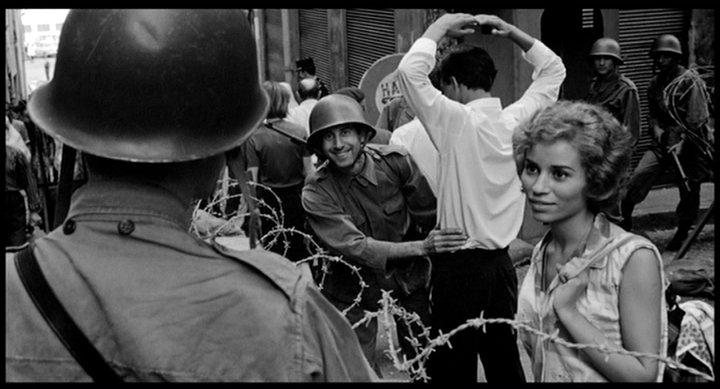One of the biggest questions I came away from the JFK movie with was why Oliver Stone chose to make some of the conspiracy theories seem so explicitly clear. By the end of the movie, it seemed that the main character and the film were arguing for the government to reveal of the truth as to the details of the JFK assassination, as well as any other secrets that may be held from the American public. He does not seem to claim to know exactly how any of it happened or who did what, nor does he seem to make that the central focus of his closing monologue. However, he IS sure of the fact that a conspiracy took place, and he demands the truth. So, if the main theme of the film is the quest for the truth, which cannot be abandoned, why did the director feed us such an explicit idea of what really happened, with the inter-government coop? With the government “Agent X” who details the corruption and secrecy of the different military agencies? This seems to give his audience another speculatory take on the situation, and yet portrays this take as the truth, which we should believe as viewers. This seems to go against Stone’s final argument and parting declaration, that we should settle for nothing less than the truth and the documents to prove it from the mouth of the government itself. Perhaps Stone desired for this speculatory conspiracy theory to seem real enough to spark action in his viewers?
All posts by Christopher Bouquet
Battle of Algiers Notable Themes
There are several recurring and important themes portrayed in The Battle of Algiers, undoubtedly meant to expose the truth behind unstable areas of the word and the violence that comes with them. In several different scenes racism is flaunted, although this could just have been the reality of the time period and not commentary on the situation. However, innocents taking the blame and the backlash for acts of violence is a theme that is showed several different times within the film. This is a sign of the realism of the film, as it shows the injustice of violence and the tendency of people to let anger cloud their judgement and hurt those who are innocent. The “Arabs”, no matter who they are, are assumed to be up to no good or responsible for whatever has happened every time. This is seen when Ali is tripped up at the beginning of the movie(although he actually was a criminal being chased in that instance), when an attack on a police officer is blamed on an innocent old man by accusing French people on the rooftops, and when a child is attacked after the bombing of the horse races. The racism that leads up to these unjust acts of accusation is undeniable, and seems to have been included purposefully by the director to show how quickly blind tensions can escalate.
Disregard of Human Rights in Children of Men
In Children of Men , the idea of human rights are often called into question, perhaps most noticeably with the illegal immigrants. Not only were citizens encouraged to live in a state of suspicion and mistrust of possible immigrants around them, illegal immigrants that were caught were also caged, sometimes tortured, and then deported. I believe that the film makes a powerful statement by comparing illegal immigrant prisons to what seem like prisoner of war camps, and in this way calls into question our own modern day real approaches towards illegal immigrants. I believe that the film cautions against a future in which we may forget the basic humanity and human rights of illegal immigrants in our real-life quest to protect our borders. I also believe that this is another example of dark realism within the movie.
